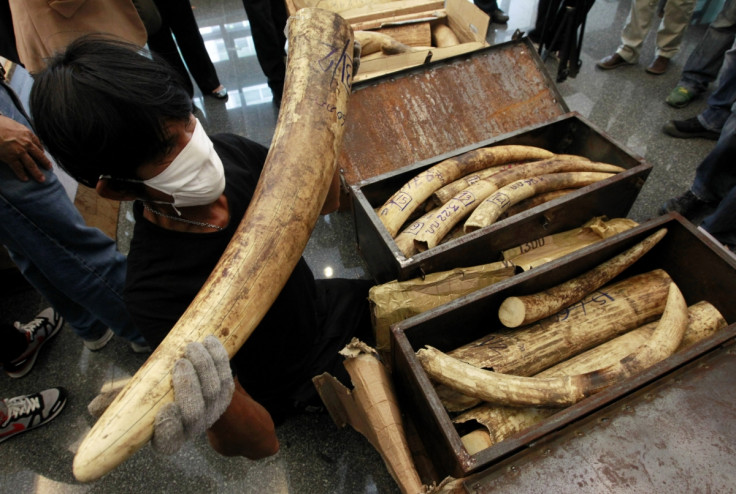Thailand: Ivory Market Boom 'Fuelling Poaching of African Elephants'

Thailand's unregulated ivory market has boomed in the last 12 months and is fuelling Africa's elephant poaching crisis, conservationists have warned.
According to a report by wildlife group TRAFFIC, the number of ivory products on sale in Bangkok nearly trebled from 5,865 in January 2013 to more than 14,000 at the end of the year.
In the same period, the number of retail outlets found selling ivory in the streets of the Thai capital almost doubled from 61 to 120.
Animal activists claim that a large part of the ivory is smuggled into the kingdom from Africa by criminal groups.
"[Thailand's] ivory markets continue to be out of control and fuel the current African elephant poaching crisis," TRAFFIC's Naomi Doak told AFP.
The sale of ivory from Thai domesticated elephants is legal in the country, but critics say the law provides a cover for illegal trade of African ivory and eases access of smuggled ivory to other Asian nations.
"Thailand has had more than 20 years to do the right thing and close legal loopholes to shut down the illegal elephant ivory trade," said Crawford Allan, senior director atTRAFFIC.
"Organised crime groups smuggled more than 40 tons of illegal ivory from Africa into Asian markets in 2013, and the Thai loophole in the law is the perfect cover to trade that ivory without fear of reprisal."
Ivory is largely turned into ornaments shipped to China and Vietnam, where tusks are used in traditional medicine.
"Tourism in Thailand is also contributing to the challenge, as tourists – including Americans – have little clue that the open Thai markets selling ivory souvenirs are a cover for a dark secret linked to organised crime and an elephant poaching crisis," said Allan.
Thailand has signed an international agreement to render the trade of ivory a serious crime, enforceable under international law, with stricter prison sentences.
The south East Asian nation has also pledged to start a legislative process to tackle the ivory market problem during a global meeting of the Convention on the International Trade in Endangered Species (CITES) in Bangkok last year.
Conservationists, however, say the government should be more swift in implementing the related measures.
Approximately half a million elephants currently live in Africa but, conservationists say that at the current poaching rate, over the next decade the total population could be cut by a fifth.
In 2013, more than 20,000 African elephants were poached for their tusks.
Theerapat Prayurasiddhi, deputy director general of Thailand's Department of National Parks, Wildlife and Plant Conservation, said that efforts to improve the state's control over the ivory market were under way.
"When we can have better control, the trade will be stricter and illegal trade will decrease," he said.
© Copyright IBTimes 2025. All rights reserved.




















